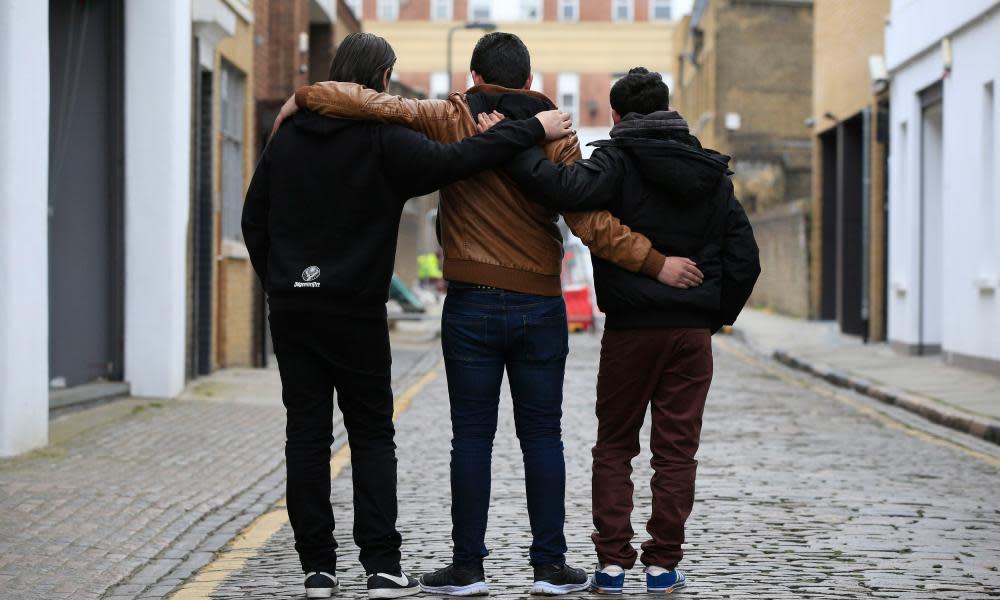We felt so lucky to foster a young refugee. Don’t let Parsons Green tarnish a proud tradition | Anonymous

A year ago my husband and I were reading about child refugees arriving in the UK. On the spur of the moment, we decided to become foster parents. After all, we had enough space, the resources to offer support and felt a responsibility to do something. Trusting and caring for strangers who need it is a British tradition that we felt proud to become part of.
Within just a few days, Ibrahim (not his real name) arrived. He was a teenager from Aleppo whose journey to the UK had been long and dangerous. He was shellshocked, but relieved.
My heart sank when I heard about the attempted bombing at Parsons Green station in London. It sank further when we learned that some of the suspects were Syrian and had lived with a foster family. No one is more upset than Ibrahim that any young person, particularly a Syrian from a similar background and life circumstances to him, would act in this way.
We have been supported by the local authority and excellent social workers. We have also been reassured by the significant checks undertaken by the Home Office. If, at any stage, we had felt uncomfortable, we could have ended the arrangement.
However, we haven’t needed to. Rather, we have felt privileged to help a lovely young man restart his life. Our foster son is keen to take his place in British society, to help his community and ours, to contribute and to make the most of his new situation. He dreams of becoming a politician so he can make a positive change in the world.
Ibrahim has a kind heart. He believes that all British people are good
Of course, there have been many cultural differences to overcome and behaviours that have needed explaining. We have had to develop our understanding of each other’s perspectives. From his months living in the camp known as the Calais “Jungle”, he had become completely nocturnal. We’ve had to try to reverse this and rewire his ability to trust people and feel safe. He has found it strange that we both work, even more to see my husband help in the house. I’ve been practising Syrian cooking. One day after I had prepared an array of different dishes he showed me an old photo of a real Syrian banquet.
Ibrahim has a kind heart and is in some ways naive. He believes that all British people are good and that he is safe now. We have had to advise him to be wise and careful, explaining that life is not always that simple.
He lives between two worlds – making the most of his life in the UK, while grieving for what he has lost and hoping for good news from home. We have shared sad times: the pain of seeing his home country at war, or hearing his sister had died. We have also shared happy times: when he speaks to people at home and learns that things are OK.
As his English has improved, it has been easier to understand each other and appreciate our similarities as well as our differences. We share the same values of community and service, and the same understanding that education and work lead to reaching one’s potential.
And, in many ways, Ibrahim is just like any other British teenager. He goes to bed too late and then has trouble getting out of bed in the morning. He wants to succeed, but needs discipline to study. He spends a lot of time on his phone playing games and keeping in touch with friends.
There are cultural differences that require explanation. Three weeks in, Ibrahim told us that in Syria it is not customary to say thank you inside your home. We enjoyed telling him that in the UK when you go out with girls you accompany them home.
Each milestone has been a celebration; through the charity Safe Passage, which helped Ibrahim come to the UK, he has met amazing people and spoken in parliament. After months of waiting, he was granted leave to remain and he is desperate to get his travel documents so he can join us on a family holiday and travel on a plane for the first time. Fostering means we appreciate how lucky we are to be living in a democracy and to have a family we can see or speak to whenever we want, a passport and an identity giving us freedom to travel.
We will never again be able to depersonalise a war reported in the news. We now see our lives, which we used to take for granted, through the eyes of someone who didn’t have these opportunities.
Fostering has shown us there is a huge need and that giving has its own priceless reward. We are helping others to see that we should not judge anybody because of where they come from, but for what they do as individuals.
So, when we see the Parsons Green attack being connected with foster children, we feel desperately sad. There have been huge numbers of refugee children welcomed to Britain throughout our history. Many of them have made important contributions to the fabric of our society. We hope this horrific act, which we cannot comprehend, doesn’t affect people considering fostering.
Above all, we feel lucky that we have the privilege of being British, thanks to brave journeys taken by generations before us. It means that we’ve been able to help a child who, through no fault of his own, found himself in a dangerous, horrendous situation and had the survivor’s instinct to find his destiny and make the most of his potential.

 Yahoo News
Yahoo News 
